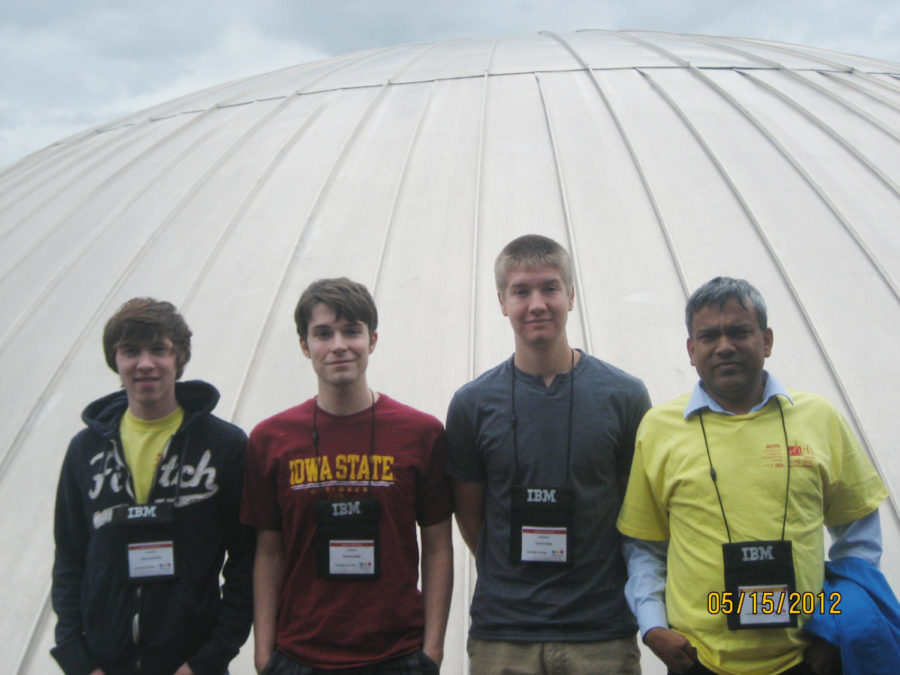ISU programming team returns from Poland world finals
Bryce Sandlund, left, senior in computer science; Kerrick Staley, senior in computer engineering; Devon Eilers, junior in management information systems; and Simanta Mitra, senior lecturer in computer science, are competing at the Association for Computing Machinery international collegiate programming contest from May 14 to 18 at the University of Warsaw in Poland.
May 28, 2012
Three Iowa State students returned from Warsaw, Poland, from the World Finals of the International Collegiate Programming Contest early this May. Out of 113 teams from all around the world, they placed 95th.
The team members Devon Eilers, junior in management information systems; Bryce Sandlund, senior in computer science; and Kerrick Staley, senior in computer engineering, all agree they wish they could have done better but are happy to have the experience.
Eilers said their team’s score was okay, considering they had never competed in something that big. Staley commented that they performed comparably to the other two teams in Iowa State’s region, University of Minnesota—Twin Cities (112th place) and University of Wisconsin—Madison (71st place).
“We were up against some pretty stiff competition. … There were a lot of top notch universities there from all around the world,” Staley said, adding it was a bit intimidating but also exciting to meet people from around the world and to compete along their side.
“I think a lot of it just comes down to basically rolling the dice of what exactly happens when you’re at a competition,” Sandlund said. “It’s very possible with the skills we had that we could have gotten three or four problems solved. Sometimes the problems just fit with your skills a little bit better.”
Sandlund explained that at the competition, they had been working on a problem that, when they tried to submit through, had some kind of bug in it and the solution was not accepted. They spent two or three hours trying to work through it, which they could have spent working on another problem.
Staley said the problems were a little more difficult than they had expected.
Sandlund said the way the team had prepared for the World Finals did not quite cut it. They were doing regional competitions but working on easier problems that would not likely show up at the world finals.
“I wish I would have looked at harder problems and figure out how to do the ones I didn’t know how to do instead of working on the ones I did know how to do,” Sandlund said.
Staley said the environment was different from what they were used to encountering in computer science class.
Team members would sit three to a single computer, which Staley said created an interesting dynamic because they had to divide tasks and have individual members solve problems independently, planning on a piece of paper and then come together to use the computer.
“The team had to learn to adjust to an environment where they need to think ahead of time and then collaborate,” Staley said, adding he believes the ISU group made a pretty good team and collaborated nicely.
Next year’s competition will be in St. Petersburg, Russia. Staley said if they do more preparations for next year, they have a definite shot at going again.

















